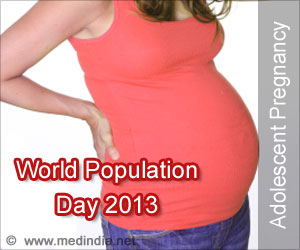World Population Day is observed annually on the 11th July to focus and raise awareness on the issues related to increasing global population.
- World Population Day is an international campaign observed all over the world on the 11th July to raise awareness and address issues related to rising global population
- Currently, the world population stands at 7.6 billion and the combined population of the world’s two most populous nations, namely India and China is 2.7 billion (more than a third of the world population)
- Population issues need to be urgently addressed to avoid food and water shortages, rising pollution, global warming and related disasters already happening around the world
History of World Population Day
This year, 2018 marks the 50th anniversary of the 1968 International Conference on Human Rights, where it was globally emphasized for the first time that family planning is a human right. The Teheran Proclamation, which was the outcome document of the conference affirmed that, “Parents have a basic human right to determine freely and responsibly the number and spacing of their children.”It was first decided to observe 11th July as World Population Day as an annual event from 1989 by the Governing Council of the United Nations Development Programme following the huge public interest raised on this day in 1987 when global population reached 5 billion, termed as the Five Billion Day.
World Population Day hopes to raise and spread awareness on various population issues and measures to control population such as the education on importance of family planning, health of the mother and human rights, gender equality and educating youth on sexual and reproductive health issues.
Important Objectives of World Population Day
The United Nations Fund for Population Activities (UNFPA), forming the population division of the UN collaborates with many partners, including governments, as well as non-governmental organizations, members of civil society, religious leaders and others, to achieve its aim.UNFPA strives hard to support population control and family planning and welfare measures in developing countries by offering financial and technical assistance to implement various programs.
In 2018, UNFPA has once again redoubled its efforts hoping to change the world for everyone, no matter what age, gender or race and make it a better place.
- Putting an end to gender-based violence and harmful practices such as child marriage, forced pregnancies, and abortions
- Educating and sensitizing youth and aged alike about the importance of gender equality
- Educating the youth about sexually transmitted diseases and their prevention
- Making family planning accessible to all women, and educating and empowering women to make informed choices on their reproductive health
- Improving care of pregnant women and preventing avoidable maternal deaths
- Making education available to all children and avoiding gender discrimination inequalities
- Share the World Population Day Theme for 2018 widely on social media such as Facebook and Twitter and use catchy phrases and slogans to capture people’s imagination and attention
- Organize events and educational programs in slums and other underprivileged areas to educate youth about the importance of family planning and prevention of sexually transmitted diseases
- Organize events and short skits in the community to educate about the need to educate the girl child, family planning, and gender equality and dangers of gender based discrimination
- Hospitals can conduct free well-woman clinics for the poor and underprivileged sections
- Giving wide coverage on visual media about events related to World Population Day so that the message reaches everyone
- Local administration should get involved and actively support family planning and other welfare measures, making free contraceptive measures accessible to all women.
- Governments should frame stricter laws making gender bias and discrimination a severely punishable offence
- Governments should offer incentives for families that follow family planning measures and withdraw incentives or slap fines if these measures are flouted
Important Population Facts and Issues Needing Attention
- Currently as per July 2018 reports, global population stands at 7.6 billion and is increasing at the rate of 100 million every 14 months
- World population is expected to reach the 10 billion mark by 2050
- Gender based violence affects 1 out of 3 women and has to be urgently addressed
- The practice of child marriages is estimated to affect 70 million girls worldwide in the next 5 years
- Teenage pregnancies and related complications are the leading cause of death in girls between 15-19 years
What Nobel Prize Winners Say About Rising Human Population
More than a third of 50 Nobel prize-winning scientists surveyed by the Times Higher Education in 2017 said that human overpopulation and environmental degradation are the two biggest threats facing humankind. In the same year, a statement by 15,364 scientists from 184 countries suggested that the alarming rate of increase in human population is the "major driving force” behind several ecological and social disasters and impending threats.To conclude with a quote by Henry W Kendall, “If we do not voluntarily bring population growth under control in the next one or two decades, nature will do it for us in the most brutal way whether we like it or not”.
World Population Day is also an occasion to wake up to the reality of an over populated world that has a large number of people within countries who struggle for basic requirements such as food and shelter and need our help and support. Communities, meaning people of good will, can come together and share knowledge, time and other resources with the lesser privileged in order to empower them and include them in tackling issues related to unchecked population growth.
References:
- World Population Day 11 July - (http://www.un.org/en/events/populationday/resources.shtml)
- United Nations Population Fund - (https://www.unfpa.org/about-us)
Source-Medindia












